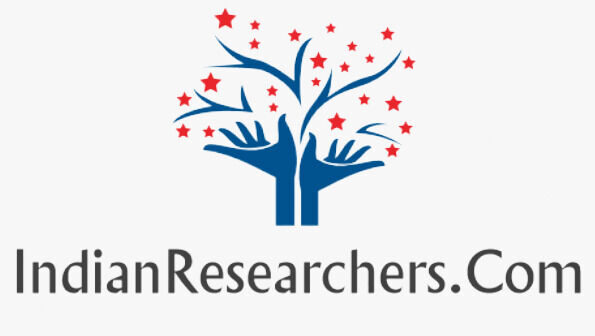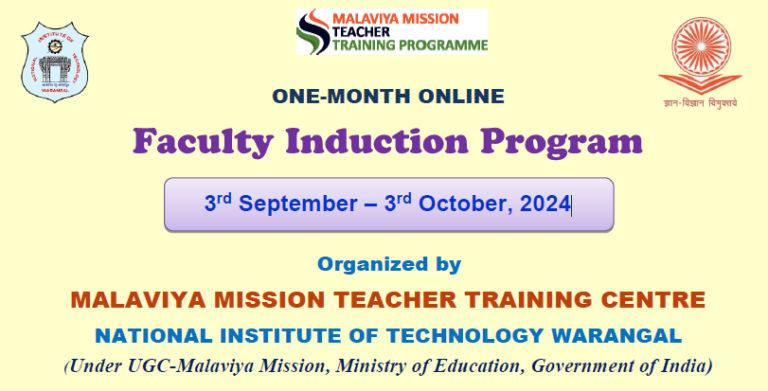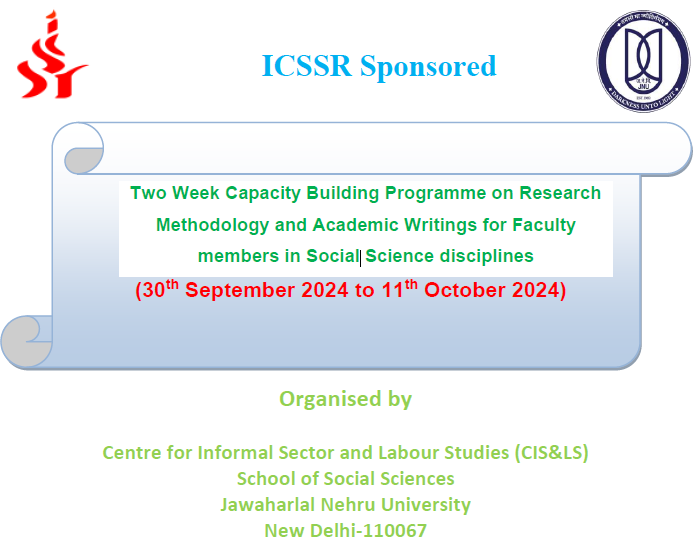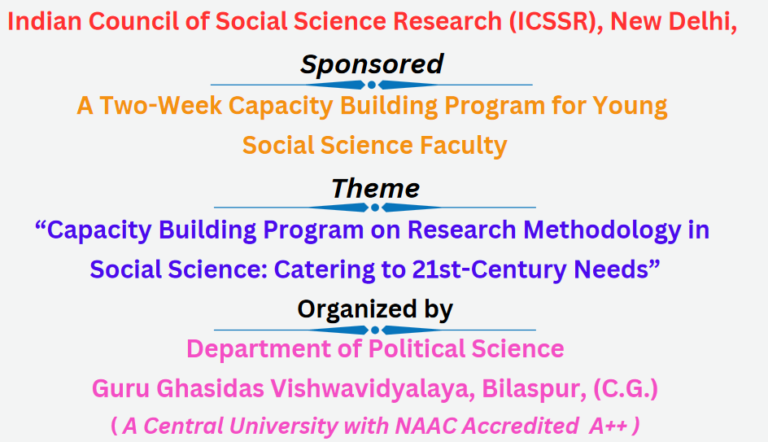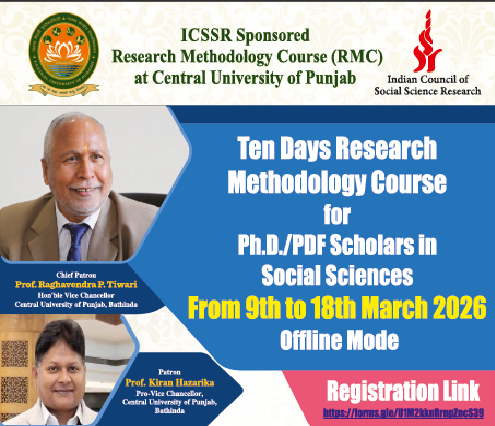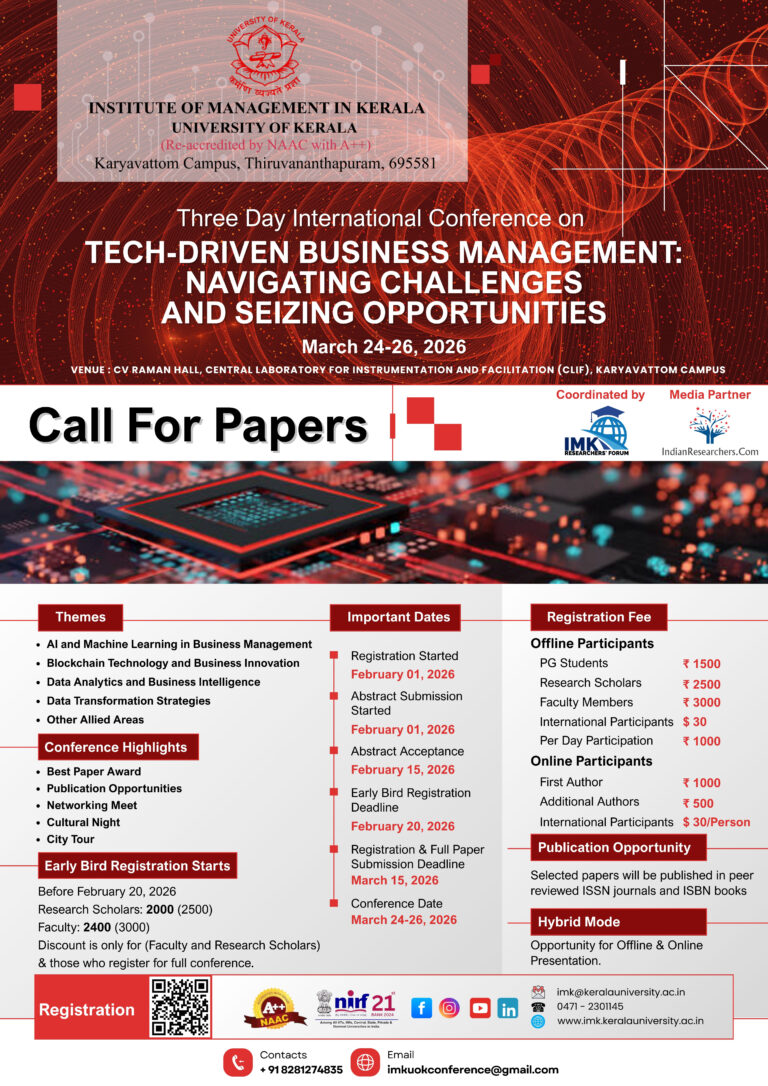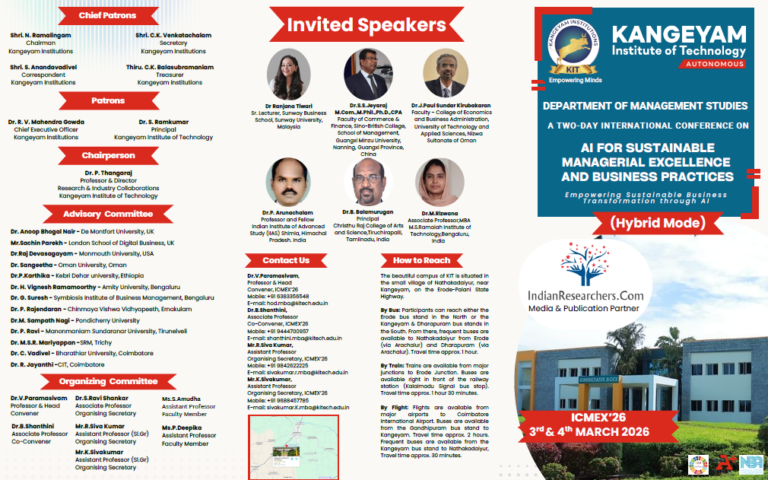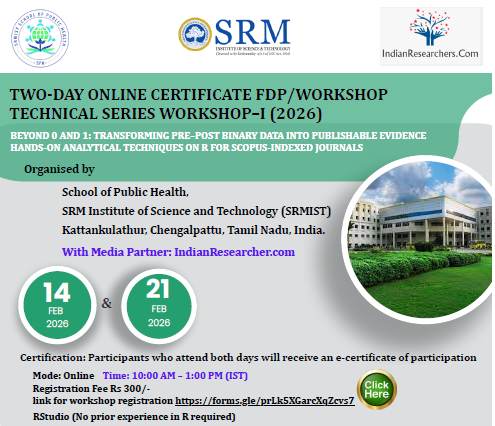Free ONE-MONTH ONLINE FDP Organized by MALAVIYA MISSION TEACHER TRAINING CENTRE NATIONAL INSTITUTE OF TECHNOLOGY WARANGAL, from...
IndianResearchers.Com Updates
Four-Day Faculty Development Program on Nanotechnology and Its Role in Automotive Industry 18-21, Sept, 2024 Organized by...
COURSE OVERVIEW Welcome to our RMC on drafting effective research proposals and writing compeling research paper. Research...
About the Course AI has been part of our imaginations and simmering in research labs since a...
Department of Electronics and Communication Engineering, Sri Manakula Vinayagar Engineering College is organizing AICTE Sponsored ATAL Faculty...
OBJECTIVES The overall aim of the proposed course would be to hone the research skills of young,...
ABOUT THE PROGRAMMEThe Academic Research Excellence Capacity Building Program is tailored for faculty members in Social Sciences,...
About the Capacity Building Programme: Capacity-building on an individual level requires the development of conditions that allow...
ICSSR Sponsored Two-Week Capacity Building Program for Young Social Science Faculty Capacity Building Program on Research Methodology...
ABOUT THE PROGRAMMEThe Capacity-Building Programme (CBP), Organised by the Department of Geography, Gauhati University, Guwahati, Assam-781014 (India),...
